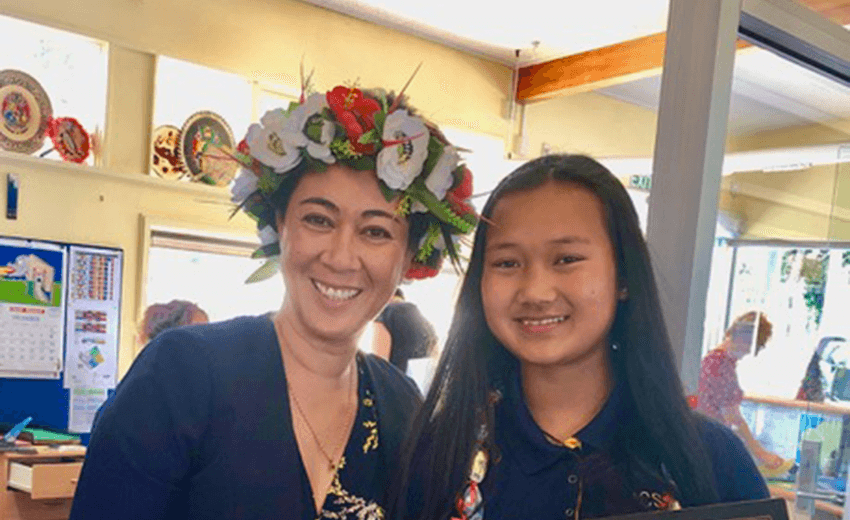Much has been made of digital divide, but as Justin Latif has observed in his role as a board of trustee member of Māngere Central School, schools in the area are making big strides to ensure students aren’t left behind.
It’s hard to imagine what lockdown would be like without the limitless time-consuming options provided by the internet. No mindless memes, no Netflix for babysitting, no celebrity zoom singalongs, and possibly not even Saint Ashley’s dulcet tones reassuring us at 1pm everyday.
If you’re a student, having an iPad or laptop is obviously even more important, as it’s the only way to remain connected with your teachers and peers.
Beyond this current lockdown, laptops and internet access are now obligatory tools for educational and career advancement.
However as research also shows, digital disadvantage is felt most by families in communities like Māngere which has high proportions of Māori and Pasifika students. Not having internet access not only cuts these families off during times of crisis, but it also excludes many in our community from fully participating in our democracy.
But for my daughter and her classmates at Māngere Central School, this lockdown will be slightly easier than the last one.
Thanks in part to the Ministry of Education and some savvy planning from the senior leadership* of the school, every year 5 to 8 student of this decile one full primary should have access to a device to continue their learning.
And while online learning isn’t a necessity for year 1 to 4 students for this lockdown period, when all these pupils return to class they will be getting one-to-one access to iPads.
During the last lockdown, MOE reimbursed schools who bought more devices, and this has meant we can now ensure every child at the school is able to access a laptop or iPad, something that would have been unthinkable for a school like ours six months earlier.
Five-year-olds now get their own personal iPad, which stays in class, from their very first day of school, before transitioning into using a Chromebook by the time they are eight or nine. When they leave at age 12 or 13, they will be given the option of buying their device at a really affordable rate.
Having this increased engagement with digital tools opens students up to a range of new learning possibilities, and it also enables the teachers to utilise social media, graphic design and video making software.
Māngere Central School principal Jacqualene Maindonald believes the students are more engaged as a result. “I think the students are exhibiting a lot more care and ownership of their own learning, and I think the teachers have been really creative,” she says.
One of the ways to help with this digital integration within the classroom has been to run mini-workshops along with a whole day Digital Learning Summit.
This was done along with three other local schools, Bader Intermediate, Jean Batten Primary and Ngā Iwi School, and enabled teachers to get upskilled in a range of online programmes including TikTok, GarageBand and Adobe Photoshop.
“Our four local schools got together because we felt that a need was highlighted during [the first] lockdown and we needed some urgency around supporting teachers, parents and students to engage better online,” Maindonald says.
“What teachers and students are learning is that a device isn’t just something you sit behind and type on. There’s lots of creative ways you can use a device. It’s something that can record with, you can watch, or you can dance to and that’s what this is about.”
Jean Batten principal Nardi Leonard says training initiatives like this have the potential to unlock a world of possibilities for families in Māngere. “I see this is just the start of some absolutely wonderful things for our community.”
But how is all this possible for a school in a lower socioeconomic area?
To avoid putting unnecessary financial pressure on many families, Māngere Central School doesn’t ask parents to make any kind of donation towards the school’s running costs. This means the school has to be creative in raising extra funds and has looked to access grants from a range of philanthropic and charitable trusts. Over the last three years this approach has brought in an extra $50,000 per year.
While that amount might not sound like much to some, the money is the means by which the school can provide these extra tools for pupils, over and above the core costs of running the school.
And just like many schools, a major and constant drain on funds are issues with property, including leaking pipes, mouldy buildings, or much-needed upgrades to playgrounds. In many schools, private investment – or generous parental fundraising – can help pay for these upgrades, but in a community like Māngere we just can’t raise half a million dollars through a fair or a gala dinner.
So while it makes me very proud that we’re able to provide the same opportunities to our pupils that they might get at a higher decile school, there’s always the nagging knowledge that we could be easily sidetracked by a major property project.
As our principal often says, we’ve been lucky. Now we have to make the best of that luck to ensure our kids aren’t left behind.
*Although I am the chair of the Mangere Central School Board of Trustees, I can’t take any credit for the work and strategic foresight of our school’s senior leadership team.
